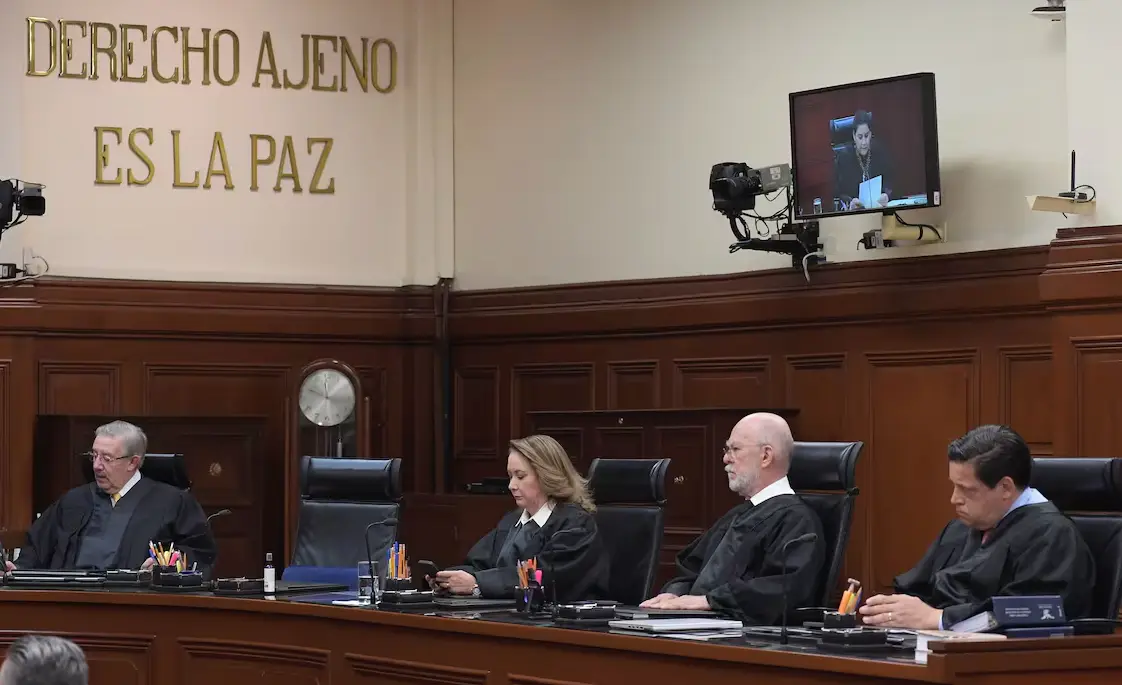The Royal Spanish Academy defines “tómbola” as a “public raffle of various objects, generally as a fairground business or for charitable purposes.” In other words, the term doesn’t apply to public positions; it simply refers to a game of chance involving items or goods.
Thus, the word tómbola has a playful connotation and is often associated with contests held during popular festivals and fairs as part of collective enjoyment.
In contrast, the process of selecting judges, magistrates and ministers is something rational; it involves positions of power in the justice system, which immediately distances it from the joy of winning a doll or a vase. These public servants in robes are expected to be the most qualified, so that, with their knowledge of the law, they can dispense the justice that is essential in any democratic society.
This is the constant in the judicial career path, linked to vocation, academic preparation, professional honorability and, above all, a strong sense of justice, so that judicial processes don’t depend on the political or economic ties that might exist in a system with separation of powers. For many, this has been the greatest weakness and the reason behind pushing for this reform.
Unfortunately, this has already begun in Mexico with the judicial reform that resulted in a toxic product—a raffle held at the Senate, which immediately determined which judicial positions will be up for grabs in 2025 and 2027.
In Morena’s internal candidate selection processes for popular elections, part of the candidates are chosen through this method. As a result, people who register passively for the process often end up becoming deputies, mayors, or senators. This dismisses political professionalism in favor of improvisation, which comes at a high institutional cost.
Morena adopted this selection mechanism from Bolivia’s judicial system, the only other Latin American country—and perhaps the only one in the world—that selects its judges, magistrates and constitutional court ministers by popular vote.
This has sparked intense debate about the effects this system will have on the delivery of justice. However, the qualified majority of a populist coalition has reduced this discussion to mere legislative noise.
There is already a calendar marking each of the crucial dates leading up to early September 2025, when those elected by direct vote will take office at both the federal and state levels.
A new phase will begin, not only for the judiciary but also for the relationship between the branches of government, as the initiative turned into the Constitution and regulatory laws by the executive and legislative branches will undoubtedly result in a judiciary without its own power. It will be subservient to the other branches, an aberration in a republican system based on the separation of powers.
Moreover, when we add political reform into the mix, which aims to reduce the number of proportional representation deputies and senators that enable political minorities to survive, we are on the verge of creating a hegemonic party. Much like the PRI, this new party aims to hold power indefinitely, with a token and irrelevant opposition.
In short, we are witnessing a constitutional and regulatory design worthy of what is technically called a “soft dictatorship,” which could soon threaten public liberties, especially in a context ripe for such a shift, with the escalation of violence across large regions of the country calling for the feared manu militari intervention.
Powerful cartels, just as or more influential than those that have shaken public life in Colombia and Ecuador—without reaching such extremes in the judiciary—have raised alarms because organized crime could invest dirty money, as it has done in elections for two decades, in the selection of judges, magistrates and ministers, creating an ad hoc lobby that serves its interests.
Despite national and international calls to neutralize this enormous risk, steps are still being taken in this direction, in accordance with a clearly established calendar. If there is no change in the regulatory laws, this system will be in operation by the final third of 2025.
In short, the legislative raffle is the backbone of what President Claudia Sheinbaum has embraced, signaling that Mexico is undoubtedly undergoing a regime change. Not the dismantling of the old regime—those institutions had already been dismantled or reshaped during the democratic transition—but the old priista (PRI) regime, one where, after progressing as a society in building institutional checks and balances, these will no longer exist, at least in the short term.













